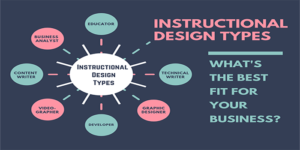
Educational Leadership Educational leadership is the process of providing leadership and direction to an educational institution. It involves the development of a vision for the institution, setting goals and objectives, developing policies and procedures, and developing a plan to implement the vision. The educational leader must ensure that the vision is implemented with the resources available, while also ensuring that the institution meets its goals and objectives. Educational leaders must also be able to effectively communicate the vision to the staff and faculty of the institution, as well as to the larger community. Educational leadership requires broad knowledge and skills in many areas, including management, teaching, and educational policy.
Educational Leadership Training Course
This Educational Leadership Training Course is designed to help experienced and new educational leaders develop the skills and knowledge necessary to lead and manage an effective school. The course covers topics such as effective communication, school culture and climate, instructional leadership, data–driven decision making, and managing change. Participants will learn how to create a positive and collaborative learning environment, how to foster a culture of continuous improvement, and how to build relationships and trust with stakeholders. The course will also provide practical methods to use data to inform school improvement initiatives, monitor progress, and develop an effective school improvement plan. The course is designed to equip participants with the skills and knowledge necessary to lead and manage a successful school.
Imprortance of Educational Leadership Course
Educational leadership courses are important for those aspiring to become successful school administrators. These courses can provide the necessary knowledge and skills to help leaders create effective learning environments for students, teachers, and staff. Additionally, educational leadership courses can help administrators develop the necessary communication and organizational skills needed to manage a school and create healthy, productive learning environments. Furthermore, these courses can provide insight into current education trends and strategies, allowing leaders to make informed decisions about curriculum development and instruction. Finally, leadership courses can help administrators gain the confidence and expertise needed to be successful in their roles.
University name of Educational Leadership Course in India
Some of the top universities offering courses in Educational Leadership in India are:
1. Indira Gandhi National Open University
2. University of Mysore
3. Tata Institute of Social Sciences, Mumbai
4. Jamia Millia Islamia, New Delhi
5. University of Delhi
6. Annamalai University
7. Amrita Vishwa Vidyapeetham
8. Indian Institute of Management, Kozhikode
9. National Institute of Educational Planning and Administration
10. Allahabad University.
What Study of Educational Leadership Course
The Study of Educational Leadership course is designed to introduce students to the principles, theories, research, and strategies of educational leadership. Students will explore the roles and responsibilities of educational leaders, examine the impact of educational structures on student learning and achievement, and learn how to develop effective strategies to improve student learning and school performance. Topics covered in the course include the history and philosophy of educational leadership, ethical decision–making, school culture and climate, developing effective school boards, and current trends and issues in educational leadership. Students will also have the opportunity to explore the skills, knowledge, and abilities needed to become successful educational leaders. Additionally, the course provides students with the opportunity to develop a portfolio or case study to demonstrate their knowledge and understanding of the topics discussed.
What are the Principles of Educational Leadership?
1. Vision and Goal-Setting: Educational leaders should have a vision for their school‘s success and identify achievable goals to reach that vision.
2. Collaboration and Partnerships: Leaders should create and nurture relationships with students, parents, staff, and community stakeholders to create an environment of collaboration and shared responsibility.
3. Communication: Leaders should communicate effectively and often with all members of the school community.
4. Professional Development: Leaders should ensure that teachers and staff have access to high–quality professional development opportunities, and use those opportunities to foster a culture of learning and growth.
5. Innovative Thinking: Leaders should be open to new ideas and approaches to education, and seek out opportunities to use technology and other innovative strategies to enhance teaching and learning.
6. Equity and Inclusion: Leaders should promote an atmosphere of equity and inclusion that celebrates diversity and meets the needs of all learners.
7. Data-Driven Decision Making: Leaders should use data to inform decisions and create strategies for improvement.
8. Integrity and Ethics: Leaders should demonstrate integrity and ethical behavior in all aspects of their work.






